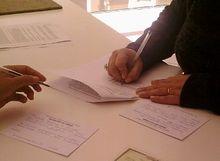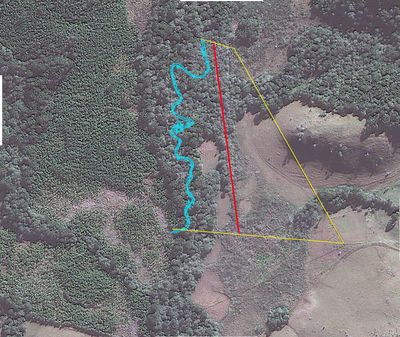Buying land in Brazil
A lot of property in Brazil is sold under contract but without a full land title. This can be done in a non-risky way but it takes very solid contracts and very good legal advice, but you can get very good deals on land as it sells for much less without a full title.
We bought a few hectares of rural land about 30Km out of Canela which we found on bomnegocio.com, but as first-time property buyers we wanted to take the simple safe approach and buy something with a full title. Since the seller was very familiar with buying and selling land, we opted to use a contract that he'd drawn up but then made some modifications based on advice we'd obtained from a friend who's good with property contracts.
The things we added were to have the title validated by the local land registration agency and have declarations from the relevant authorities stating that the land is not used as collateral against any debts and that there's no environmental restrictions on the land.
The general idea of the initial contract was that we'd give 25% of the price after checking together that the land title was indeed valid and then give the remainder after all the declarations have been made which could take a few weeks.
It's very important to go through these procedures regardless of how trustworthy the seller may be, and our case is a very good example of just how important this is. After we went to the land registration office we first found that the title was in the name of a different family member and that it was a different area than what the seller had thought.
The amount of land available to us that was under full title was actually about 20% less than expected, so the contract had to be adjusted to accommodate these changes, and another of the sellers family members had to be present to sign the contract. This process cost about R$150, but would have cost around R$500 if we hadn't made our own contract together. The picture to the left shows the notary office making our signatures on the contract official :-)
Various documents were required by the contract such as a statement from the council to say that there's no special restrictions on developing the land etc. Some of these may take a few weeks to arrive after being requested. These aren't required to create the contract, but they're necessary to have before everybody can happily sign the contract because the documents show that the owner does indeed have the right to sell the land and it's free of any restrictions etc.
After we were all happy with the contract and the documents showed that everything was fine, we flew back back to Curitiba and transferred the money to the owner.
The owner then took all the documentation to Tabelionato. At this point there may be some fees and taxes to pay to the council, which in our case costed R$460. These documents were processed after a couple of weeks, at which time we went back down there so we could all sign for the final official title transfer document called "Escritura de Compra e Venda" which costed R$660.
Then we all went to Cartório de Registro de Imóveis to publicly register the title transfer in their books which costs R$420, and takes about ten days for the title document to be sent back to us with their official stamp on it.
Summary of process
- Draw up a contract
- Request documentation
- Sign contract
- Pay
- Go to Tabelionato to start title transfer process
- Sign "Escritura de Compra e Venda" title document
- Go to Cartório de Registro de Imóveis for public resgitration
- Check your mail each day!
Buying the untitled area
In January 2013 the owner, Candido, offered us the rest of the 6.4 hectare area which has no government title, but has been squatted on by Candido's family for over a hundred years which makes it practically as safe as a title - and owning the title to an area within it makes it even safer. Beth modified the contract we used for the titled area. The image below shows the full area bounded by fences on the north, east and south, and a river on the west. The red line is where we were going to put a fence to mark the area of our titled part (the west side of the line), but now that we're purchasing the whole area, we no longer need to make this fence.









